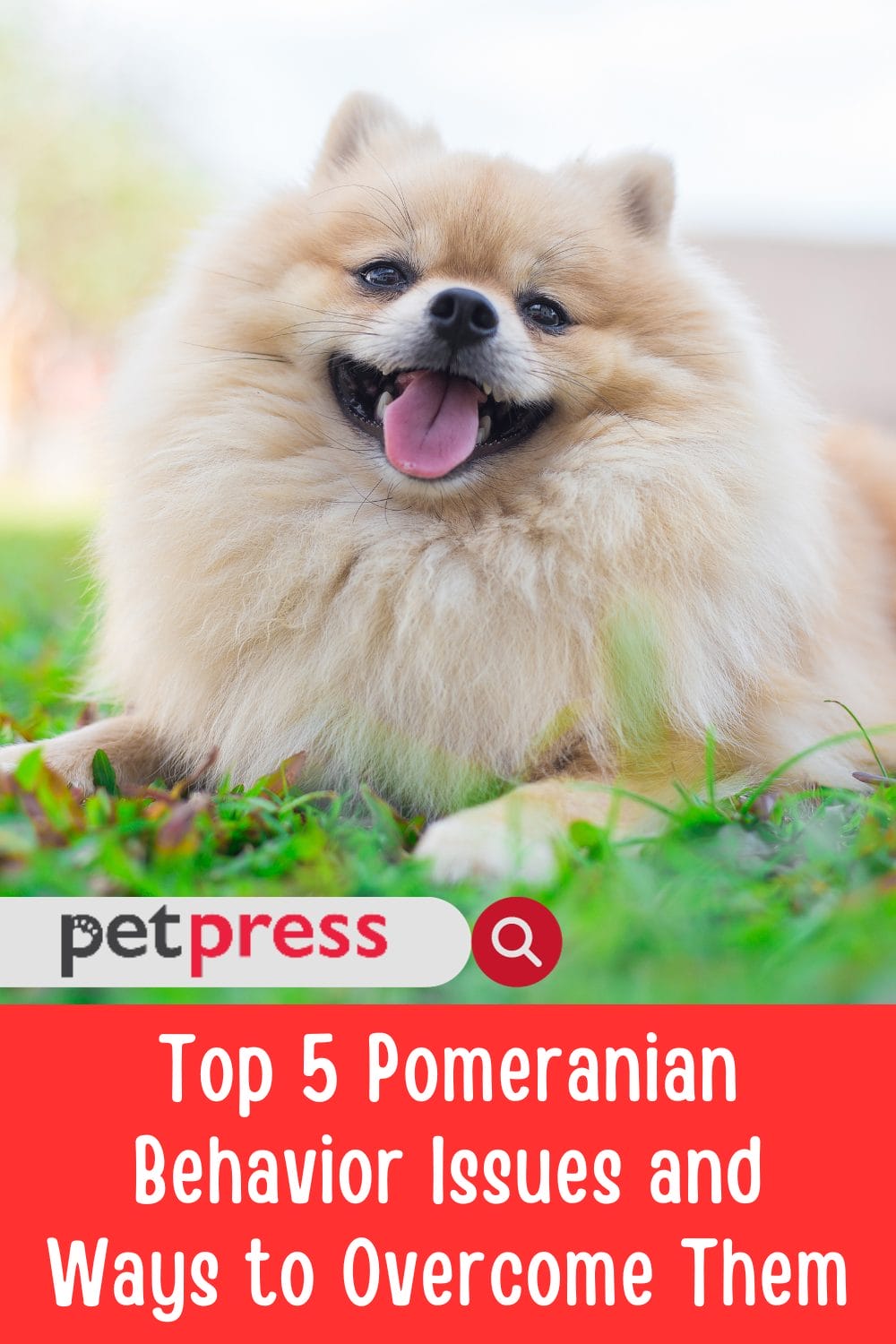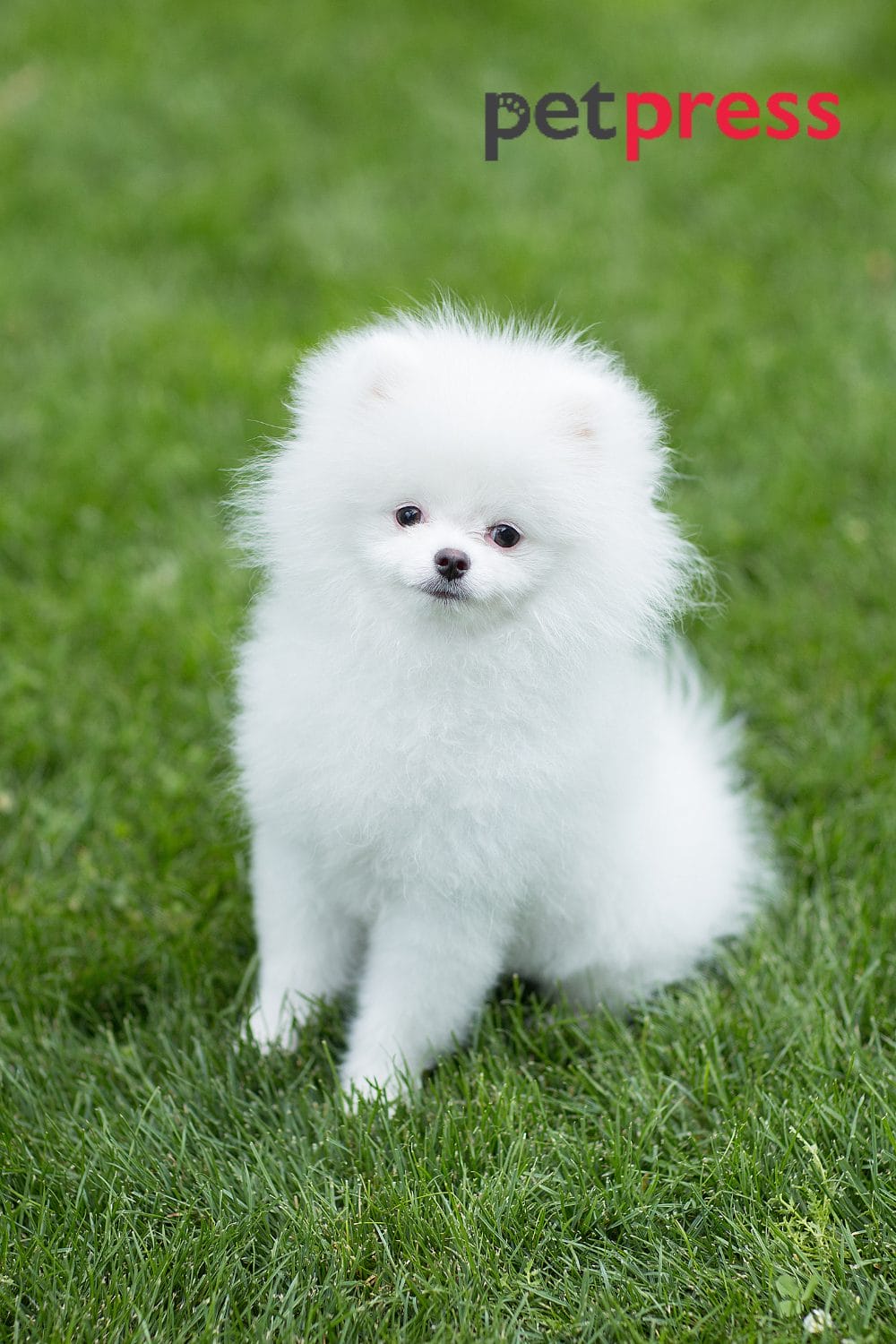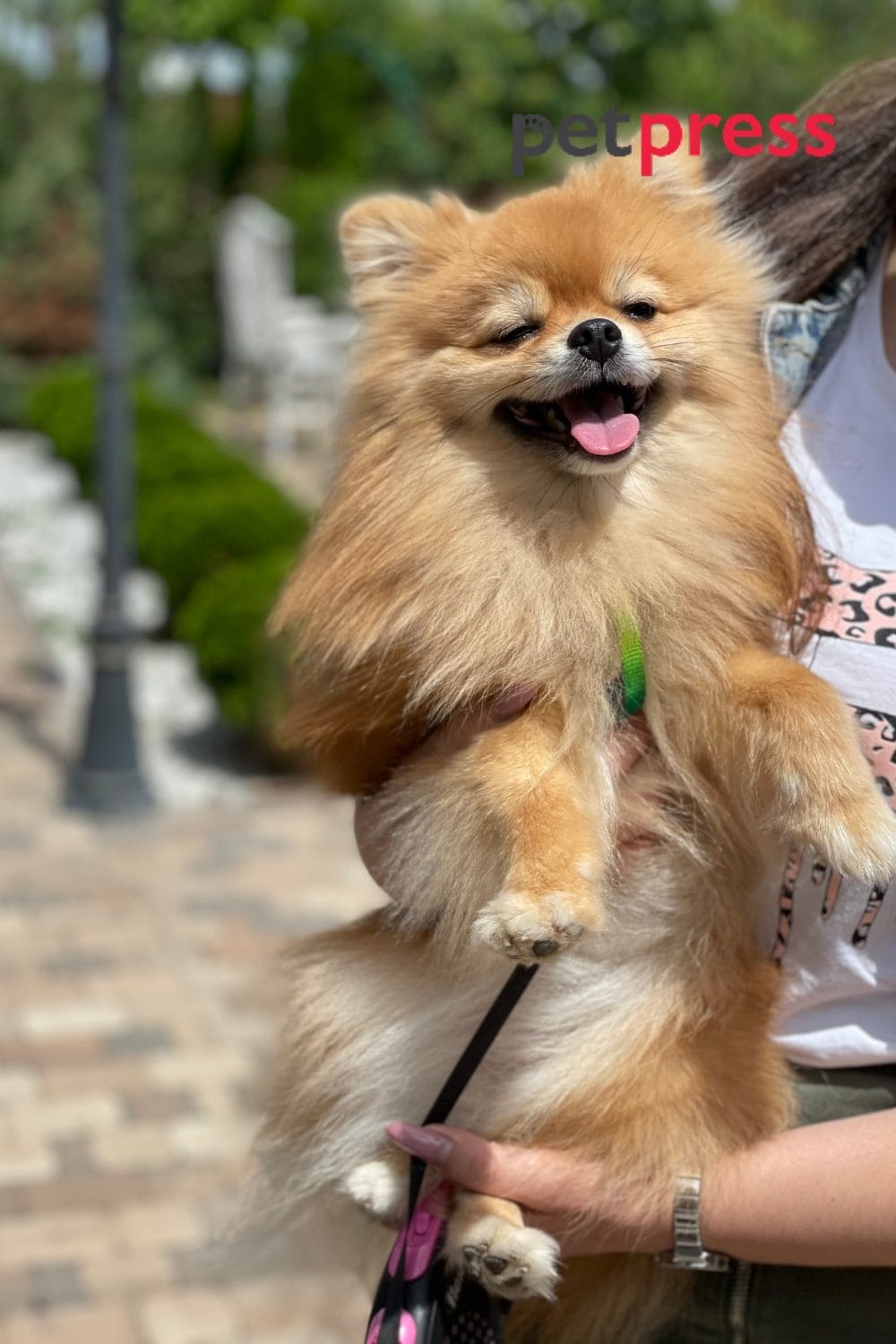
Pomeranians, adored for their delightful personalities and fluffy coats, hold a special place in the hearts of many dog enthusiasts. Nonetheless, like any canine breed, Pomeranian behavior issues can present themselves, making it challenging for their owners.
Within this guide, we shall explore typical behavior issues seen in Pomeranians and offer practical advice on managing and preventing them.
Getting to Know Pomeranians
A Pomeranian is a petite, lively, and outgoing breed, easily identified by its plush double coat and fox-like visage. Hailing from the Pomerania region in north-west Poland and north-east Germany, this breed has garnered worldwide acclaim owing to its charming disposition and manageable size.
Characteristics and Disposition of Pomeranians
Pomeranians are renowned for their spirited and playful nature. They are clever beings who thrive on interaction and are frequently described as possessing an exuberant personality packed into a diminutive frame.
Despite their small size, Pomeranians are daring and inquisitive, demonstrating a lively curiosity that can occasionally lead them astray. They are also recognized for their devotion and protective instincts, qualities that make them excellent companions.
The Pomeranian exudes a lively spirit of intelligence and often exhibits a heightened sense of self-importance, endearing it to families across the globe. However, if not properly trained, these traits can sometimes result in behavioral challenges such as possessiveness and excessive barking.

Common Behavior Issues in Pomeranians
Pomeranians are generally well-behaved, but like any breed, they have quirks. Here are some common behavior issues you might encounter with your Pomeranian:
Excessive Barking
Pomeranians are naturally very vocal dogs, but it can cause concern when it becomes disruptive. Often, this behavior results from boredom, anxiety, or a need for attention.
To address this, ensure your Pomeranian gets regular exercise and mental stimulation. Engaging in toys and interactive playtime can help redirect their energy positively.
Separation Anxiety
Pomeranians are affectionate and thrive on companionship. When left alone for extended periods, they can develop separation anxiety. This can lead to destructive behaviors, such as chewing furniture or excessive whining.
Consider crate training and gradually increasing alone time. Provide comfort items like blankets or toys to create a sense of security. Additionally, seek professional advice if the issue persists.

Aggressive Behavior
While Pomeranians are generally friendly, some may display aggressive tendencies. This behavior can stem from fear, territoriality, or inadequate socialization.
Early socialization with other dogs and positive reinforcement training are crucial. Establish clear boundaries and use positive reinforcement techniques to encourage good behavior.
Housebreaking Challenges
Housebreaking can be a common struggle for Pomeranian owners. Their small size can make it harder for them to hold their bladder for extended periods.
Maintain a consistent schedule for feeding and bathroom breaks. Reward successful outdoor elimination with treats and praise to reinforce the desired behavior.
Excessive Chewing
Pomeranian puppies, in particular, naturally explore the world through their mouths. This can lead to destructive chewing habits.
Provide a variety of chew toys to satisfy their natural urge to gnaw. Rotate these toys to keep them engaged and prevent boredom.
Fearfulness
Some Pomeranians may be prone to timidity and fearfulness, especially if they haven’t been adequately socialized as puppies.
Expose your Pomeranian to various environments, people, and experiences in a positive and controlled manner. Use treats and gentle encouragement to build their confidence gradually.
Dominance Issues
Pomeranians, despite their small stature, can exhibit dominant behaviors. This may include asserting themselves over other pets or their owners.
Consistent, positive reinforcement training is crucial. Establish yourself as the pack leader through clear commands and boundaries.
Health-Related Behavior Problems
Certain behavior issues may be indicative of underlying health problems. Sudden changes in behavior or temperament should prompt a visit to the veterinarian.
A thorough medical examination can rule out potential health concerns contributing to the behavior problem.

6 Best Ways to Overcome Pomeranian Behavior Issues
Consistent and Clear Training
Train your Pomeranian consistently and clearly to ensure they understand acceptable behavior. This includes establishing boundaries, rewarding good behavior, and addressing negative behavior immediately. You can also enroll them in obedience classes or hire a professional dog trainer for more structured training.
Adequate Socialization
Socialization from an early age is essential for Pomeranians. Introduce your Pomeranian to various environments, people, animals, sounds, and experiences to help them become well-adjusted adults. Encourage pleasant interactions to help build their confidence and reduce fear and anxiety.
Regular Exercise and Mental Stimulation
Regular physical activity and mental stimulation can significantly reduce behavioral issues in Pomeranians. Engage them in stimulating games, walks, and activities to keep their minds sharp and bodies healthy. You can challenge them mentally with interactive toys, puzzles, and intelligence games.

Positive Reinforcement
Positive reinforcement is an effective method to encourage good behavior in Pomeranians. Reward your pup with treats, praises, or extra playtime whenever they display good behavior. Positive reinforcement encourages them to repeat the positive behavior.
Seeking Professional Advice
Don’t hesitate to seek professional advice if you’re struggling with your Pomeranian’s behavioral issues. A reputable dog trainer or animal behaviorist can provide invaluable insight and practical solutions. They may need to rule out potential health issues contributing to behavioral problems.
Patience and Understanding
Understanding that behavioral issues are part of pet ownership is key. Be patient with your Pomeranian and understand that change takes time.
Take every challenge as an opportunity to form a stronger bond with your Pomeranian and to understand them better. You can overcome Pomeranian behavior issues with love, patience, and consistency.

Conclusion: A Happy, Well-Behaved Pomeranian
In conclusion, addressing Pomeranian behavior requires patience, consistency, and a deep understanding of your furry friend. You can nurture a well-adjusted and contented Pomeranian companion by providing the right environment, training, and socialization.
Remember, every Pomeranian is unique, and what works for one may not work for another. Tailor your approach to suit your dog’s needs, and enjoy the rewarding journey of building a strong bond with your beloved Pomeranian.
FAQs
Aggression in Pomeranians can stem from different factors such as fear, territoriality, or inadequate socialization. Ensuring early socialization and using positive reinforcement training can help manage this behavior.
Providing a variety of chew toys may satisfy a Pomeranian’s natural urge to gnaw. Rotating these toys regularly can also keep them engaged and prevent boredom.
Establish clear boundaries and consistent training. Assert yourself as the pack leader by using clear commands and maintaining a calm demeanor.
If you notice sudden changes in your Pomeranian’s behavior or temperament, it’s advisable to consult a vet. A thorough medical examination can identify any potential health issues.
Consistency in training, socialization from an early age, regular exercise and mental stimulation, and positive reinforcement are all key strategies. If the issues persist, seeking professional advice can be very beneficial.
Related Post:
The Wisdom in Every Bark: Top 50 Pomeranian Dog Quotes
- Does Cat Litter Melt Ice? The Complete Guide to Winter Safety - January 30, 2026
- Happy Tail Dogs: Understanding This Common Canine Condition - January 29, 2026
- How Cold Can Outdoor Cats Handle? Feline Winter Safety - January 27, 2026


GIPHY App Key not set. Please check settings